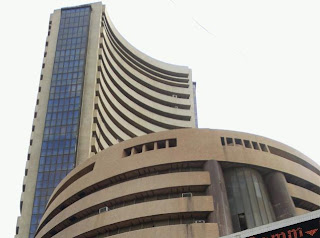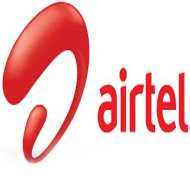
Mumbai's Glenmark Pharmaceuticals has licensed a new biotech drug to France's Sanofi which has the potential to generate revenues of $613 million or 2,734 crore.
Glenmark will receive $50 million ( 223 crore) or 8% of the potential deal value as an upfront payment in the next three months, chairman Glenn Saldanha said at a press conference on Monday.The company also stands to earn double-digit royalties on sales, he said.
Glenmark has sold marketing rights to Sanofi in North America, Europe, Japan, Argentina, Chile and Uruguay. While it has retained co-marketing rights in Russia, Brazil, Australia and New Zealand, in India, it has exclusive rights.
The product, GBR 500, is still in early human trials and being evaluated as a treatment for Crohn's disease or chronic inflammation of the bowels. It could also work in case of number of other inflammatory conditions such as multiple sclerosis and ulcerative colitis, the company said.
Shares of the company touched a new one month high as institutions accumulated large chunks of the stock. The stock touched an intra-day high of 327.80 but then gave up some of its gains to close at 305.15, up 11% from its previous close with volumes nearly twenty five times its two week average. The Sensex closed down 1%.
Of the $50 million, half is expected to flow in June-when the transaction will close-while the balance is subject to assessment of data on the drug. The entire $50 million will be used to repay debt by Glenmark, which had about 1,900 crore debt in fiscal 2011, with a debt to equity ratio of 0.8.
The rest of the money, $563 million, is a total of all milestones or bullet payments that it stands to make if and when the drug makes progress in clinical trials and goes to market. The earliest it can reach the market is 2017.
"It's premature to calculate the drug's potential going forward," said Surajit Pal, pharma analyst at Elara Capital, pointing out that a lot depends on which disease conditions are pursued, and how that market will look in these many years. "As of now, it's a one-time deal," he said.
This is Glenmark's sixth licencing deal since it began new drug discovery a decade ago and it's first for a biologic.
"It is very difficult to cut such a deal, the licensing environment is very tough," said Michael Buschle, Glenmark's president (biologics). "It's hard work, it takes years and now we've been successful."
Siddhant Khandekar, Chief Manager (Research) at ICICI Securities said: "This is a first NBE outlicensing deal done by any Indian company, and we believe it will have a positive impact going forward in terms of revenues."
A majority of analysts across brokerages expects a 8-10 gain per share on an upfront basis from the Sanofi deal. The company's earnings per share (EPS) currently stand at 20.5 for FY12 which could go up to 23.30 for FY13. The stock has a "Buy" recommendation at most brokerages as it is currently trading at 17 times FY13 earnings, which consider to be an attractive level by most.
Drug R&D a high-risk endeavour
The long-term prognosis is less certain. The odds are often stacked against companies doing new drug research. For every drug that comes to market there are seven or eight that fail.
Since 2004, Glenmark has struck five licensing deals for chemical drugs that emerged out of its research laboratory in Navi Mumbai for diseases such as diabetes, pain, and respiratory disease. Of these, four were returned or killed in trials and one -for pain - is currently in development. GBR 500, a product of its lab in Switzerland, is its sixth such deal.
Glenmark entered biologics research in 2006 by establishing a small laboratory in Switzerland with 5 scientists. Unlike several Indian companies researching biotech copycats or biosimilars in the hope of launching them as they go off-patent, Glenmark focused on new biologicals.
In 2007, Glenmark snapped up two biotech drugs in early stages of research from Canadian firm Chromos Molecular Systems for an undisclosed sum. GBR 500 was one of them. Scientists at the Switzerland lab then re-engineered it, and put it through animal testing.
GBR 500 recently completed the first phase of human trials in the US. This judges the drug's safety while successive phases prove safety and efficacy.






 ned with a positive bias, with the BSE Sensex and the NSE Nifty posting modest gains in early morning trade. However, the two main indices are struggling to hold on to the gains as weakness in banking major SBI continues to weigh on the sentiment. The market breadth is not great with the non-index counters too not going anywhere in a hurry.
ned with a positive bias, with the BSE Sensex and the NSE Nifty posting modest gains in early morning trade. However, the two main indices are struggling to hold on to the gains as weakness in banking major SBI continues to weigh on the sentiment. The market breadth is not great with the non-index counters too not going anywhere in a hurry.







